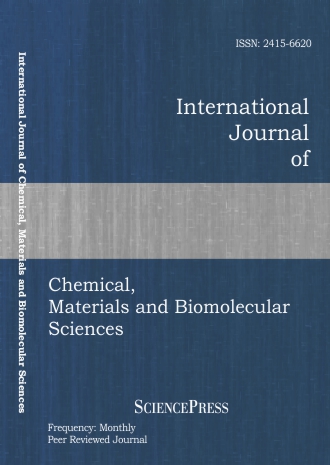
Scholarly
Volume:2, Issue: 8, 2008 Page No: 174 - 177
International Journal of Chemical, Materials and Biomolecular Sciences
ISSN: 2415-6620
1543 Downloads
Palladium-Catalyzed Hydrodechlorination for Water Remediation: Catalyst Deactivation and Regeneration
Palladium-catalyzed hydrodechlorination is a promising alternative for the treatment of environmentally relevant water bodies, such as groundwater, contaminated with chlorinated organic compounds (COCs). In the aqueous phase hydrodechlorination of COCs, Pd-based catalysts were found to have a very high catalytic activity. However, the full utilization of the catalyst-s potential is impeded by the sensitivity of the catalyst to poisoning and deactivation induced by reduced sulfur compounds (e.g. sulfides). Several regenerants have been tested before to recover the performance of sulfide-fouled Pd catalyst. But these only delivered partial success with respect to re-establishment of the catalyst activity. In this study, the deactivation behaviour of Pd/Al2O3 in the presence of sulfide was investigated. Subsequent to total deactivation the catalyst was regenerated in the aqueous phase using potassium permanganate. Under neutral pH condition, oxidative regeneration with permanganate delivered a slow recovery of catalyst activity. However, changing the pH of the bulk solution to acidic resulted in the complete recovery of catalyst activity within a regeneration time of about half an hour. These findings suggest the superiority of permanganate as regenerant in re-activating Pd/Al2O3 by oxidizing Pd-bound sulfide.
References:
[1] Lowry, G. V.; Reinhard, M. Hydrodehalogenation of 1- to 3-carbon